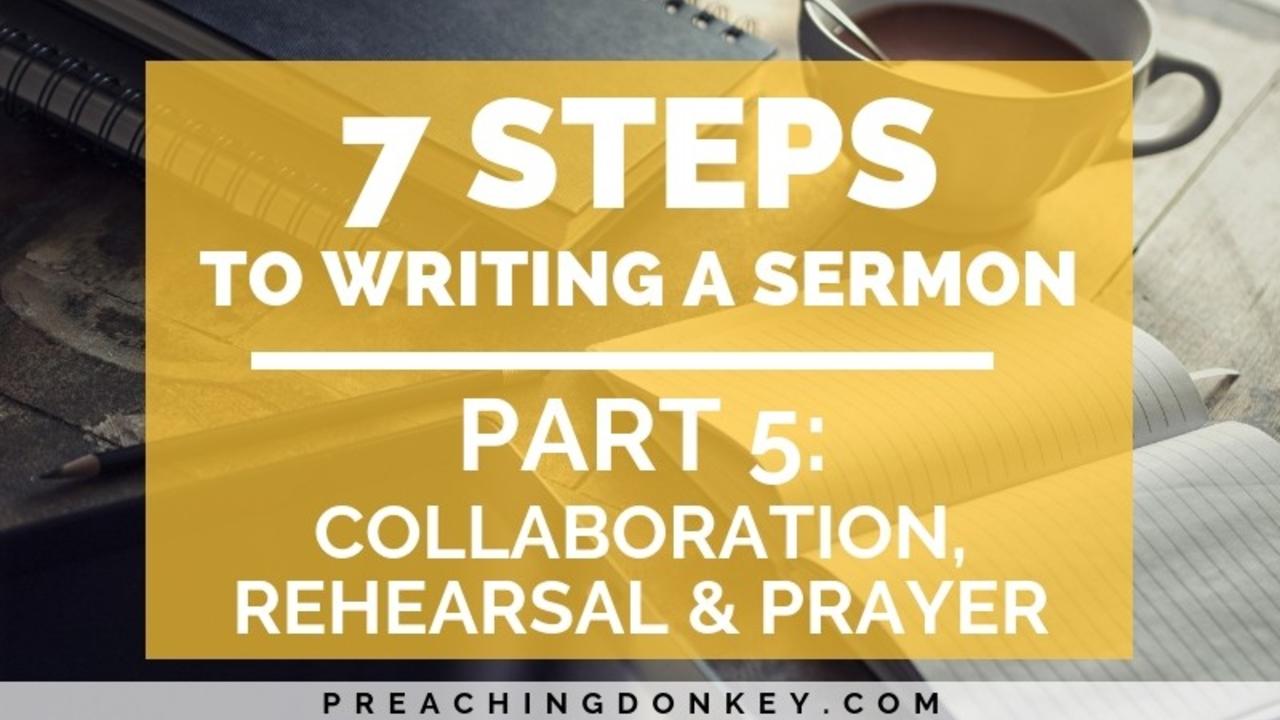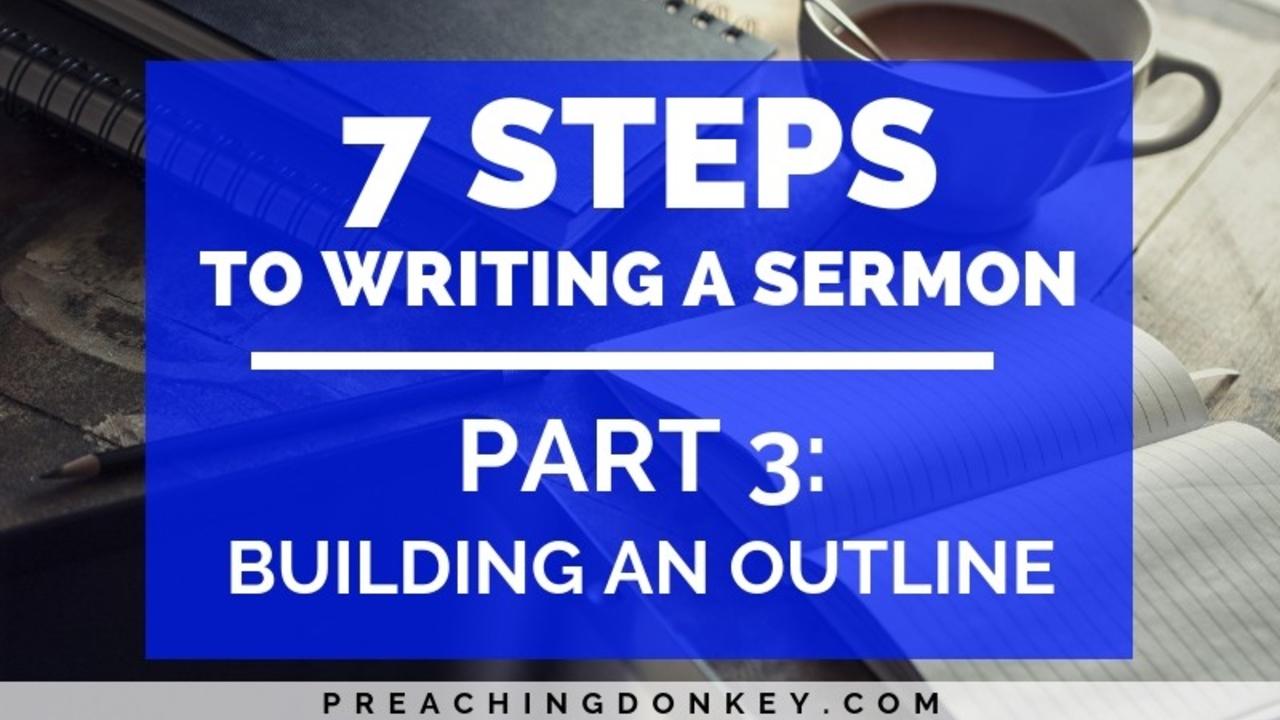How to Change Up Your Sermon LAST MINUTE (If you need to!)
In this video, we discuss how to change your sermon last minute.
This One Tweak Will Increase Engagement in Your Sermons
What if I told you that you could make your sermons more engaging by simply tweaking one thing about your delivery?
What if you could easily work this tweak in to your message this Sunday?
Very often we over complicate this process by looking for the MASSIVE change we need to make to improve our preaching when in reality it is the subtle, small tweaks that get us the best results.
So, what is the one small tweak you can make to increase engagement in your sermons? Find out in this video.
This One Tweak Will Increase Engagement in Your Sermons
In this video, we discover the ONE small tweak you can make in that will increase engagement in your sermons.
Kill these 5 Distracting Preaching Habits
Every preacher has physical tendencies that unintentionally distract the audience. Sometimes these are known by the preacher and other times they are ticks and habits that must be pointed out to be changed. Public speaking in any context, and especially in a church setting, engages your whole mind and body. This means speakers can easily find themselves neglecting to pay attention to their body language and physical habits because they have to remember what to say … and everyone is watching.
All of us could use some coaching in this area. When I look back through videos of my sermons I notice more distracting physical tendencies than I care to admit! But there is hope and we can all overcome these by knowing what they are and working to eliminate them.
In this video we will explore five common physical distractions I’ve observed in preachers over the years. I’ve also seen a good amount of these in my own preaching and have sought to correct and eliminate them.
What are five distra...
5 Distracting Physical Habits of Preachers
In this video we explore 5 common habits preachers have that are a distraction from their message.
Three Must-Do’s For Every Point of Your Sermons
As preachers, we make points in every sermon we preach.
We try to communicate at least one point. One idea. One bottom line.
We may have one major point but a number of supporting points. The point is, you make points. Get the point?
So, what do you do with every point you make? Is it enough just to say the words. “My main point is _________. Okay, let’s close in prayer.” Well, we both know that would be insufficient.
We have to do more than just say a point for it to stick. But how do we do this? How do we develop sticky points that land on people in powerful ways.
In this video, I suggest doing at least three things with every point you make in your sermons. Using these as a base line allows you to do more if you’d like, but make sure you’re at least doing these three things with every point you make in your sermons. Give it a watch and let me know what you think in the comments. What do you do with every point you make?
3 Must Do's for Every Point you Make in Your Sermons
When we preach, we make points. But a point can only be effective when we are intentional about how we present it. In this video I discuss how to make sure each point is communicated clearly and effectively so your listeners understand them and know how to apply them.
7 Steps to Writing a Sermon – Part Five – Collaboration, Rehearsal & Prayer

In this series of posts, we have walked step-by-step through a proven-process to get you from a blank page to ready for Sunday in 7 Steps. In this final post we will look at the last three steps of writing a sermon.
In case you missed it, you can check out Part 1, Part 2, Part 3 and Part 4 of this series to get caught up on the first four steps. Let’s dive into the final three steps:
Step 5: Get feedback BEFORE you preach it.
There is a relatively huge mistake that a lot of pastors make on a routine basis: They preach their message without running the material by anyone first. This can be a huge problem because if you are the only one seeing your content you may miss something because we all have blindspots. You may think something makes perfect sense when it really doesn’t. You may think the points connect to the main idea when they really don’t. You may be on the right track but need a little guidance to make sure your message connects powerfully to your audience.
These reasons ...
7 Steps to Writing a Sermon – Part Four – Crafting Your Points

Have you ever wanted a step-by-step guide to creating a sermon from scratch? In this series of posts, we are unpacking a practical guide to go from a blank page to ready for Sunday in seven steps. If you work through the seven action steps in this series, you’ll have a sermon written and be ready to go. You can check out Part 1, Part 2, and Part 3 of this series to get caught up on the first three steps. For today, let’s dive into step four:
Step 4: Craft your points.
At this point in the process you have a workable outline that flows from building tension to resolving the tension with the text to applying the text and inspiring action. At this point it is especially important to have well-crafted points that give you listeners a way to navigate with you through your sermon and see how it works for them.
principles to keep in mind when developing your points:
Every point should tie back to your main idea.
If it doesn’t, either change your main idea or ditch the point. For exampl...
7 Steps to Writing a Sermon – Part Three – Building an Outline

In this series of posts, we are discovering a practical guide to go from a blank page to ready for Sunday in seven steps. If you work through the seven action steps in this series, you’ll have a sermon written and be ready to go. In Part 2 of this series we looked at second step which is to dig into Scripture. You can check that out here. If you missed part 1 you can check it out here. For today, let’s dive into step three:
Step 3: Build an outline. At this point in your study you have established a topic, title and hook. You have thoroughly studied the primary passage of scripture and other supporting texts. You have taken notes on what you’ve observed from the passages. As you’ve taken notes your thoughts have began to form around what you would want to communicate in a sermon. Some of the heavy lifting is over because at this point you’ve done so much foundational work that the sermon structure should come naturally. If it doesn’t at first, it will the more you do this. This, like ...



